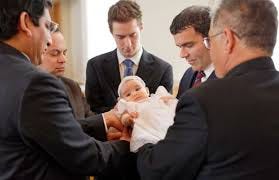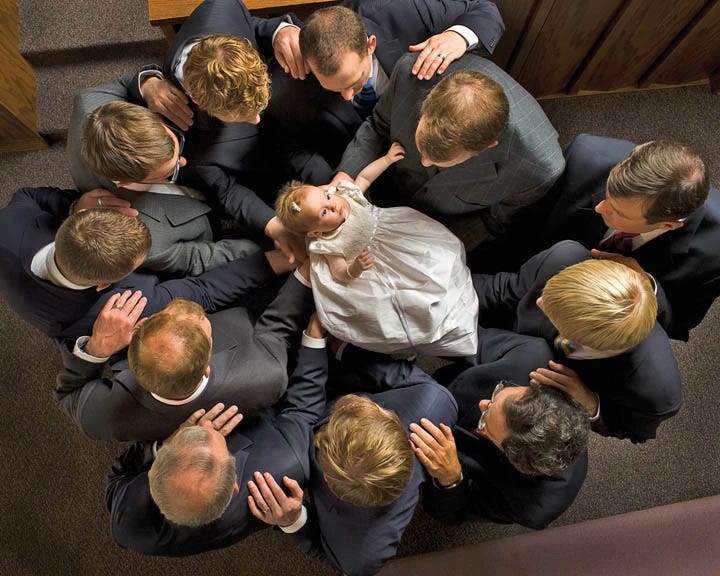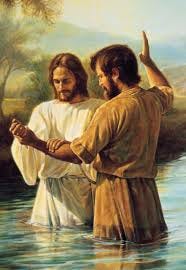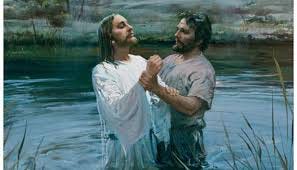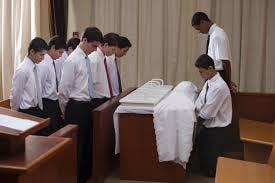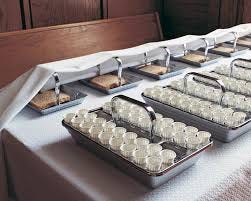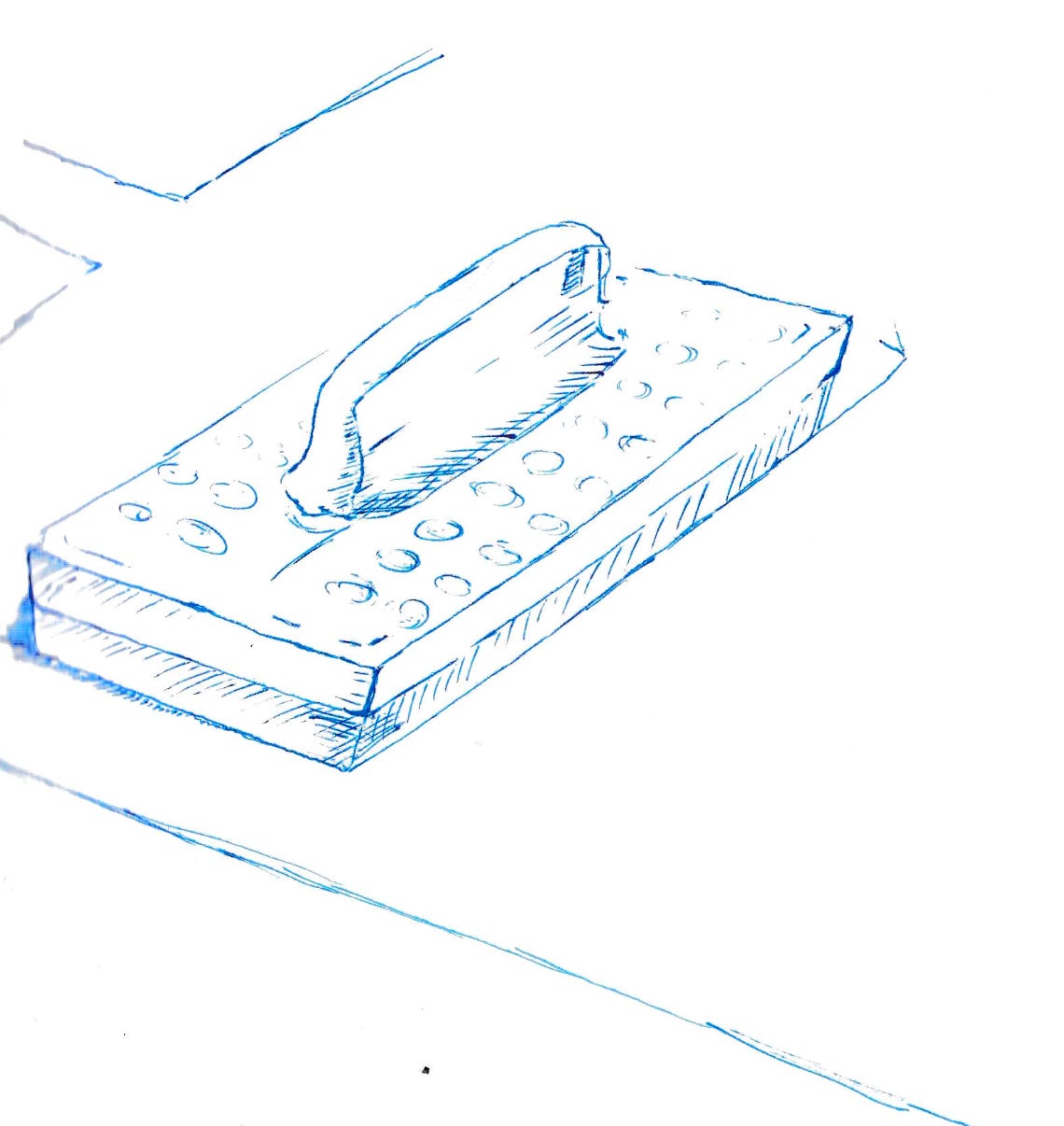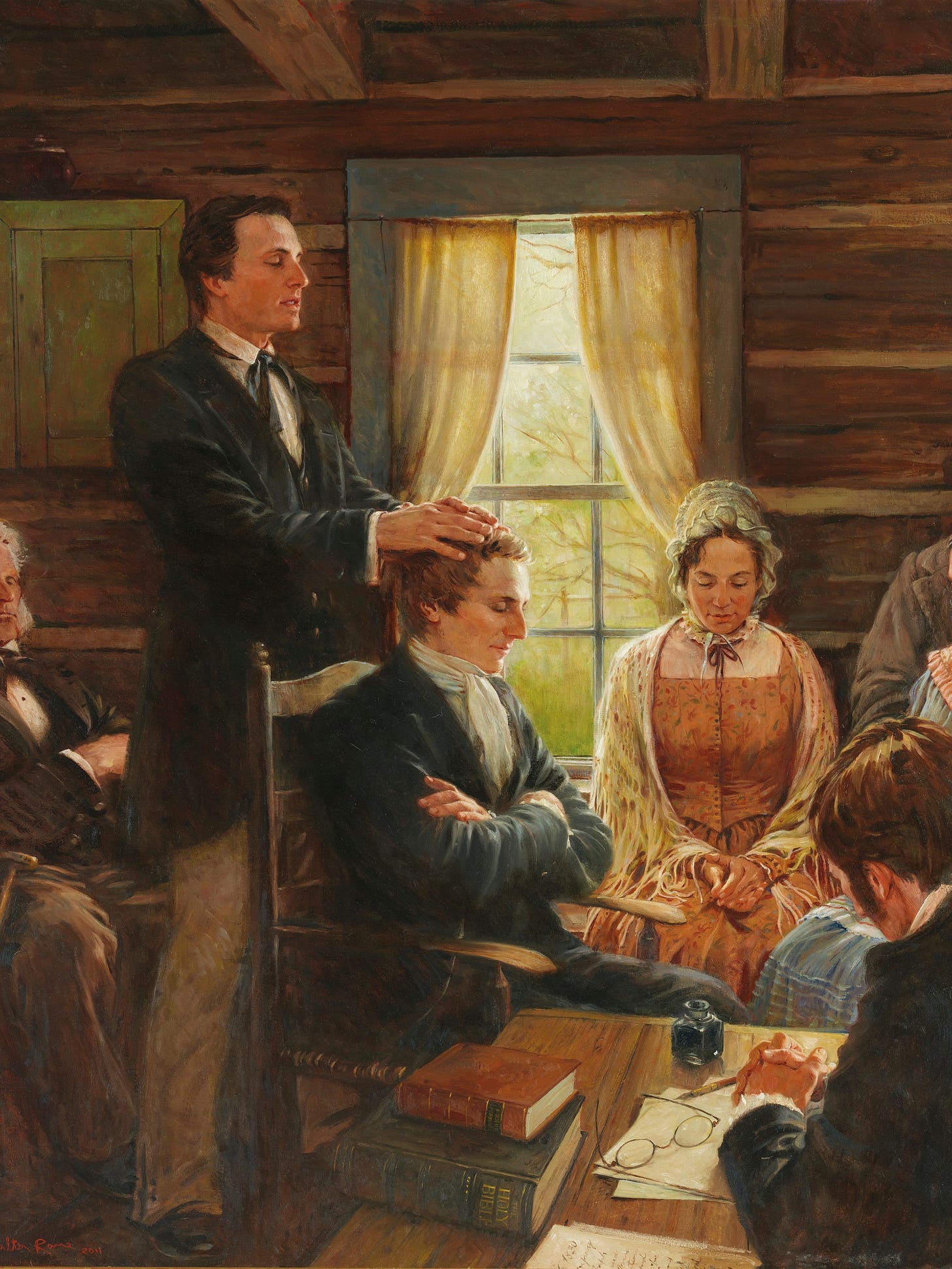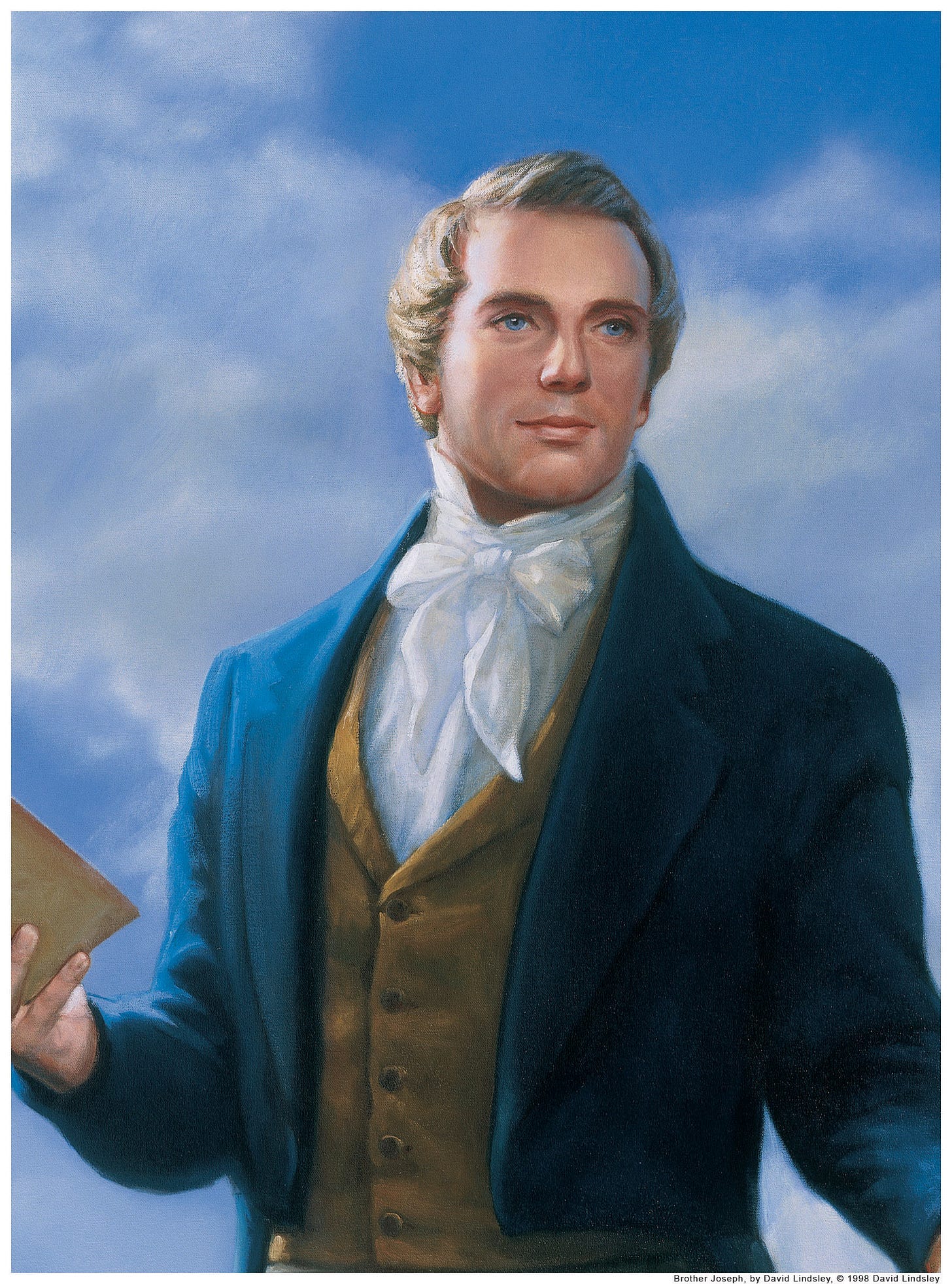In All Patience and Faith
Concluding Reflections on Doctrine and Covenants 20-22
The rest of the revelation recorded in Doctrine and Covenants 20, according to Bruce R. McConkie’s section summary, contains information about the laws that govern repentance, justification, sanctification, and baptism (29–37), the duties of elders, priests, teachers, and deacons (38–67), the duties of members, blessing of children and the mode of baptism (68–74), and the sacramental prayers and regulations governing Church membership (75–84).
The clarity and simplicity of the doctrine is fitting for such a foundational document. The Church of Jesus Christ is not an exclusive club for the wealthy, the talented, or the highly educated. It is open to all who will repent and come unto Christ:
And again, by way of commandment to the church concerning the manner of baptism—All those who humble themselves before God, and desire to be baptized, and come forth with broken hearts and contrite spirits, and witness before the church that they have truly repented of all their sins, and are willing to take upon them the name of Jesus Christ, having a determination to serve him to the end, and truly manifest by their works that they have received of the Spirit of Christ unto the remission of their sins, shall be received by baptism into his church. (D&C 20:37)
The duties of members of Christ’s Church are simple and clear, many of which duties are associated with the administration of ordinances, including baptism and the sacrament. Just as in the ancient Nephite Church of Christ described in the Book of Moroni, everything in the latter-day Church of Christ must be conducted and led by the Holy Ghost, according to the commandments and revelations of God. The duties of members of the priesthood also includes visiting and ministering to families in their homes, watching over the Church, and persuading other members of the Church toward repentance and righteousness, inviting all to come unto Christ.
Just as in the ancient Nephite Church of Christ described in the Book of Moroni, the gifts of the Spirit must be operative in the latter-day Church of Christ. Members of Christ’s Church must also meet together often, even in conferences. Section 20 of the Doctrine and Covenants also mentions licenses, voting, and certificates.
The Lord’s Church is a house of order as well. Before new members partake of the sacrament, for example, the elders or priests must have sufficient time to teach them:
The duty of the members after they are received by baptism—The elders or priests are to have a sufficient time to expound all things concerning the church of Christ to their understanding, previous to their partaking of the sacrament and being confirmed by the laying on of the hands of the elders, so that all things may be done in order. (D&C 20:68)
The invitation to repent and come unto Christ is open to all, but there are specific requirements for joining and belonging to His Church. For example, members must demonstrate by “a godly walk and conversation” and by “works and faith agreeable to the holy scriptures” that they are worthy of confirmation and partaking of the sacrament. Members must walk “in holiness before the Lord.” There are high standards for membership and participation in Christ’s Church, but these standards are attainable by all who love God and have a sincere desire to serve Him.
Have you ever attended a sacrament meeting of the Church of Jesus Christ of Latter-day Saints when a newborn child has been blessed? Not too long ago I attended an LDS sacrament meeting during which three infants from three different families were blessed. That was a special occasion. I’ve attended meetings and masses in a variety of different churches and congregations, but to my knowledge, the manner of blessing children in the Church of Jesus Christ of Latter-day Saints is unique:
Every member of the church of Christ having children is to bring them unto the elders before the church, who are to lay their hands upon them in the name of Jesus Christ, and bless them in his name. (D&C 20:70)
This is at least one doctrine and practice in the Church that seems to have been perfectly preserved from the time of the founding of the Church until now, and for that I am grateful. Although infants are blessed in the Church of Jesus Christ, no one becomes an official member of the Church of Jesus Christ until he or she is able to decide for himself or herself:
No one can be received into the church of Christ unless he has arrived unto the years of accountability before God, and is capable of repentance. (D&C 20:71)
This makes a lot of sense. The age of accountability also makes a lot of sense:
For all men must repent and be baptized, and not only men, but women, and children who have arrived at the years of accountability. (D&C 18:42)
This age of accountability isn’t arbitrary. The Lord later revealed the meaning of the age of accountability:
Wherefore, they cannot sin, for power is not given unto Satan to tempt little children, until they begin to become accountable before me; (D&C 29:47)
And again, inasmuch as parents have children in Zion, or in any of her stakes which are organized, that teach them not to understand the doctrine of repentance, faith in Christ the Son of the living God, and of baptism and the gift of the Holy Ghost by the laying on of the hands, when eight years old, the sin be upon the heads of the parents.
For this shall be a law unto the inhabitants of Zion, or in any of her stakes which are organized.
And their children shall be baptized for the remission of their sins when eight years old, and receive the laying on of the hands. (D&C 68:25–27)
I was baptized and confirmed as a member of the Church of Jesus Christ of Latter-day Saints when I was eight years old. In 1984, at the end of September (just after my 8th birthday) my dad baptized me in a lake, near Hillsdale, Michigan. The water was cold, but I felt warm inside. I felt the Spirit of God envelop me after I was baptized.
Baptism in the Lord’s Church is also unique, and D&C 20 outlines the Lord’s manner of baptism:
Baptism is to be administered in the following manner unto all those who repent—
The person who is called of God and has authority from Jesus Christ to baptize, shall go down into the water with the person who has presented himself or herself for baptism, and shall say, calling him or her by name: Having been commissioned of Jesus Christ, I baptize you in the name of the Father, and of the Son, and of the Holy Ghost. Amen.
Then shall he immerse him or her in the water, and come forth again out of the water. (D&C 20:72-74)
This is how Jesus Christ was baptized, and it is the manner of baptism that He has commanded for His followers.
This raises an obvious question for those who have already been baptized in other churches. Do they need to be baptized again, according to the Lord’s manner of baptism? The simple answer is: yes. Soon after the organization of the Church of Jesus Christ, the Lord revealed the truth about authoritative baptism:
Behold, I say unto you that all old covenants have I caused to be done away in this thing; and this is a new and an everlasting covenant, even that which was from the beginning.
Wherefore, although a man should be baptized an hundred times it availeth him nothing, for you cannot enter in at the strait gate by the law of Moses, neither by your dead works.
For it is because of your dead works that I have caused this last covenant and this church to be built up unto me, even as in days of old.
Wherefore, enter ye in at the gate, as I have commanded, and seek not to counsel your God. Amen. (D&C 22:1-4)
Just as in the ancient Nephite Church of Christ described in the Book of Moroni, the Lord commanded members of His latter-day Church to “meet together often to partake of bread and wine in the remembrance” of Him. And just as recorded in the Book of Moroni, the Lord revealed His authoritative manner of administering the sacrament:
And the elder or priest shall administer it; and after this manner shall he administer it—he shall kneel with the church and call upon the Father in solemn prayer, saying:
O God, the Eternal Father, we ask thee in the name of thy Son, Jesus Christ, to bless and sanctify this bread to the souls of all those who partake of it, that they may eat in remembrance of the body of thy Son, and witness unto thee, O God, the Eternal Father, that they are willing to take upon them the name of thy Son, and always remember him and keep his commandments which he has given them; that they may always have his Spirit to be with them. Amen.
The manner of administering the wine—he shall take the cup also, and say:
O God, the Eternal Father, we ask thee in the name of thy Son, Jesus Christ, to bless and sanctify this wine to the souls of all those who drink of it, that they may do it in remembrance of the blood of thy Son, which was shed for them; that they may witness unto thee, O God, the Eternal Father, that they do always remember him, that they may have his Spirit to be with them. Amen. (D&C 20:76-79)
The Lord later revealed to the Prophet Joseph Smith that water could be used in place of wine, but this another ordinance that has remained essentially the same since the beginning of the restoration of the Lord’s Church.
The rest of D&C section 20 includes instructions regarding transgressors, conferences, record keeping, excommunication, and certifications of membership in the Church.
The following section, D&C 21, contains a revelation that was given to the Prophet Joseph Smith at the organization of the Church of Jesus Christ on April 6, 1830, in the Whitmer home in Fayette, New York. Six men who had previously been baptized participated in the organization of the Church of Jesus Christ, and by unanimous vote they expressed their desire and determination to organize according to the commandment of God.
As also mentioned in McConkie’s section heading, these men voted to accept and sustain Joseph Smith Jr. and Oliver Cowdery as the presiding officers of the Church. During this first meeting of the restored Church of Jesus Christ, Joseph Smith layed his hands upon Oliver Cowdery and Oliver Cowdery layed his hands upon Joseph Smith, ordaining each other as elders of the Church. The sacrament was then administered, and Joseph and Oliver laid hands upon the other participants, one by one, to bestow the Holy Ghost and confirm each as a member of the Church.
In this revelation, Joseph Smith was called to be a seer, translator, prophet, apostle, and elder, to guide the cause of Zion, and to speak by the Comforter. The Lord called and inspired the Prophet Joseph Smith by the Holy Ghost to “lay the foundation” of His Church, and “to build it up unto the most holy faith.” The Lord commanded members of His Church to “give heed unto all his words and commandments.” He commanded members of His Church to walk “in all holiness” before Him. The Lord bestowed great power and authority upon the Prophet Joseph Smith:
For his word ye shall receive, as if from mine own mouth, in all patience and faith.
For by doing these things the gates of hell shall not prevail against you; yea, and the Lord God will disperse the powers of darkness from before you, and cause the heavens to shake for your good, and his name’s glory.
For thus saith the Lord God: Him have I inspired to move the cause of Zion in mighty power for good, and his diligence I know, and his prayers I have heard.
Yea, his weeping for Zion I have seen, and I will cause that he shall mourn for her no longer; for his days of rejoicing are come unto the remission of his sins, and the manifestations of my blessings upon his works. (D&C 21:5-8)
The Lord also promised to bless all those who labor in His vineyard with a mighty blessing. The Lord promised that the Saints would believe on the Prophet Joseph Smith’s words as he spoke by the Comforter, the Holy Ghost, the same Spirit of God that manifests that Jesus was crucified by sinful men for the sins of the world, for the remission of sins unto the contrite heart.
These early Saints who gathered in the Whitmer home believed the revelations that the Lord gave to the Prophet Joseph Smith, and so do I. In fact, I know by the same Comforter, the Holy Ghost, that they are true. In this same meeting, Oliver Cowdery was ordained to be the second elder of the Church of Jesus Christ and to be the first preacher of this Church unto the Church, and before the world. This message went first to the Gentiles, and it will also go to the Jews.
As the 200th anniversary (on April 6, 2030) of this event quickly approaches, I am grateful that the Lord called and ordained the Prophet Joseph Smith to restore the Church of Jesus Christ and to lay the foundations thereof. As a diligent student of the teachings of the Prophet Joseph Smith, I know that he was and is a true seer, translator, prophet, and apostle of Jesus Christ, and that he was inspired of the Holy Ghost to lay the foundation of Christ’s Church and to build it up unto the most holy faith. I know that the Lord inspired him to move the cause of Zion in mighty power for good, and that the Lord knew his diligence and heard his prayers. I know that the Lord saw his weeping for Zion, and that He blessed the Prophet Joseph Smith with the remission of his sins. I know that the Lord manifested His blessings upon the Prophet’s works.
For these and many other reasons I receive, in all patience and faith, the Prophet Joseph Smith’s word as if from the mouth of God Himself, in faith that by so doing the gates of hell shall not prevail against me and that Lord God will disperse the powers of darkness from before me, and cause the heavens to shake for my good, and for His name’s glory.






